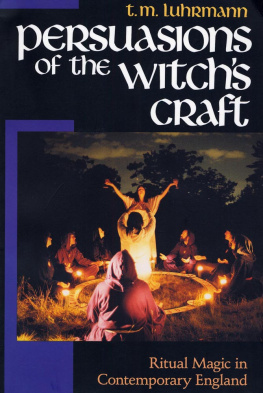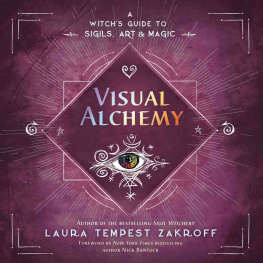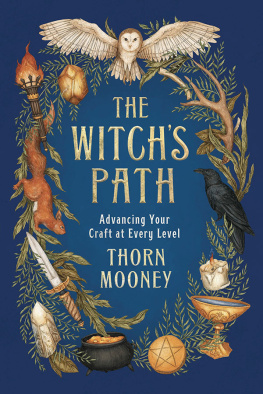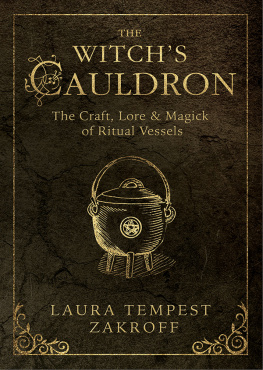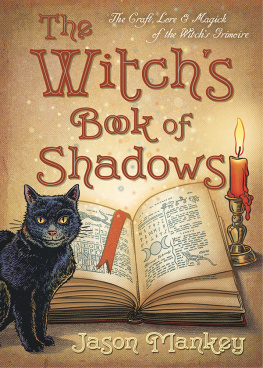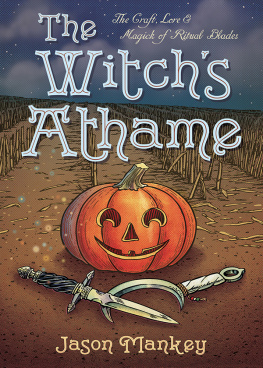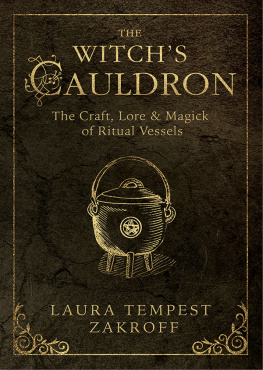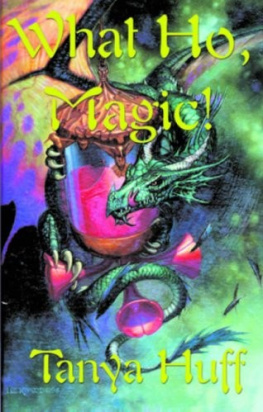Copyright T. M. Luhrmann, 1989
All rights reserved
Printed in the United States of America
10 9 8 7 6
First Harvard University Press paperback edition, 1991
Library of Congress Cataloging-in-Publication Data
Luhrmann, T. M. (Tanya M.), 1959-
Persuasions of the witchs craft: ritual magic in contemporary
England / T. M. Luhrmann.
p. cm.
Bibliography: p.
Includes index.
ISBN 0-674-66323-3 (alk. paper) (cloth)
ISBN 0-674-66324-1 (paper)
1. Witchcraft England History 20th century. 2. Magic England History 20th century. 3. England Religion 20th century.
I. Title.
BF1581.L84 1989 88-33382
133.430942 dc19 CIP
For my parents
T HIS book owes a great deal to other people, and it is a pleasure to thank them for their kindness and concern. Its roots lie in a doctoral thesis in social anthropology, although the fruition has been quite different than the nature of those roots might have suggested. Three people in particular saw the thesis emerge, read drafts of the book, and have guided me from the very early stages of the research. Stephen Hugh-Jones supervised the thesis: he gave generously of his time and insight, and helped me to fashion scattered intuitions into a coherent whole; Ernest Gellner, who took over the supervision during Stephens sabbatical, always pressed me to see the broader picture, and to be bolder in my claims; Geoffrey Lloyd spent many hours in conversation with me about the nature of magic, and inspired my interests in many of the issues described within. Gilbert Lewis and John Skorupski examined the thesis on which the book is based John Skorupski also read the book for the publishers and each made pertinent and productive remarks which have helped to shape this final product. Alan Macfarlane helped me to think about the nature of witchcraft and its practitioners; Sarah Harrison actually introduced me to my first witch, through friends of a friends friend. Vincent Crapanzano read the draft for the publisher, and made very helpful comments. Paul Seabright read a draft of the book, and pointed out when the paragraphs became tendentious. Conversations with Pascal Boyer helped me to see the issues of part two more clearly. Shelley Burtt read the thesis and the book and helped me to put them both in order; she, more than anyone else, has taught me how to write the clumsiness that remains is my own. John Geanakopolos read the draft, made acute comments, and tolerated me when the sentences misbehaved. I am most grateful to my family, who gave me the support and the courage I needed to approach my questions through an unconventional route.
The magicians I met and came to know as friends were welcoming and supportive even when I was at my most frustrating. Beth and Enoch in particular, but also Emily, Angel, and the Companions of the Glittering Sword; Simon and the Hornsey group; Gareth Knight and those at Greystone; the myriad of people I met in pubs and rituals I learned far more from them, about human relations, about self-awareness, and about friendship, than I could begin to express. I am deeply grateful to them.
I would also like to thank those whose financial generosity has made this effort possible. The Wenner Gren foundation supported the fieldwork, as did the Richards Fund and the Wyse Fund of Cambridge University, and the National Science Foundation in the United States supported the graduate study itself. Christs College elected me to a Research Fellowship during which time the thesis was completed and the book actually written. Without this support, the work may never have been done; without the grace and scholarly encouragement with which Christs surrounded me, it certainly would have been done less well.
The author and publisher would like to thank the following for their kind permission to reproduce figures: Wolfe van Brussel for figs 12, 13; Century Hutchinson Publishing Group Limited for figs 8, 9; Hermetic Research Trust for fig. 14; Marc Edmund Jones Estate for fig. 7, from Marc Jones How to Learn Astrology (Shambhala Publications, Inc., Boston, 1978, p. 103); Samuel Weiser, Inc., York Beach, ME for fig. 1, from Edred Thorsson Futhark: A Handbook of Rune Magic (1984, p. 8).
Finally, the author and publisher would like to thank the following for their kind permission to reproduce plates: Ruth Bayer for 11, 12, 13, 14, 15, 16, 17; Bodleian Library, Oxford for 6, from Robert Fludd Utriusque Cosmi Maioris scilicet et Minoris Metaphysica, Physica Atque Technica Historia In duo Volumina secundum Cosmi dijferentiam divisa... Tomus Primus De Macrocosmi Historia (Oppenheim, Johann Theodore de Bry, 1617, pp. 45); Janet and Colin Bord for 18, 19; Mary Evans Picture Library for 2, 3, 5 from Robert Fludd Tomus Secundus De Supernaturali, Naturali, Praeternaturali Et Contranaturali Microcosmi historia, in Tractatus tres distributa (Oppenheim, Johann Theodore de Bry, 1619, p. 275) and 7, 8; Fay Godwin for 20; Mansell Collection for 1; Museum der Bildenden Knste, Leipzig for 4; Cheska Potter for 9, 10.
T. M. Luhrmann
Christs College, Cambridge
W ILLIAM has been witch, kabbalistic initiate and solitary magician. He was born into a prosperous English family between the two World Wars. He was an only child. His father died soon after he was born, and as a young boy he was raised by his mother and aunt. He remembers that it was a strict but loving household. Rather shy by nature, he seems to have led a conventional and retiring life, first in private schools and then at Cambridge. He graduated with a classics degree, and took a comfortable job in the Foreign Office in London.
In the sixties, when new therapies, values and lifestyles appeared like apples in the market, William came across a popular psychological technique for controlling ones dreams and decided to experiment. For a while he went to sleep each night determined to visit, while dreaming, a friend he knew in a distant town. He always failed. One night, in the twilight between sleep and awareness, he heard a voice saying sacrifice to Zeus. He decided that this was a voice of guidance, possibly the voice of God, and that if he followed the instructions his dream experiments might work.
So William set off for Silbury Hill, to sacrifice to Zeus at dawn. Silbury Hill is an ancient mound near one of Britains most impressive stone circles. It is a drive of several hours from London. He arrived before dawn and clambered to the top of the grassy hill. To his pleasure, he lit the fire with the first match. He then sacrificed a steak. The Athenian divines traditionally were given meat. His classical education helped him with the invocation. When he got back to London he broke his fast apart from the charred beef heart he had also sacrificed and eaten on the hill and went to sleep, and dreamt that a sword was being forged for him with a blade the colours of the rainbow. The next night, he dreamt easily of visiting his friend. It was his first step into magic.
These people wholly worship the devil, and often times have conference with him, which appeareth unto them in most ugly and monstrous shape. As a discipline it has progressed through many phases: grand theories of speculative evolution, attacks upon the complacency of biological determinism, sweeping attempts to understand the nature of Mind. In all these phases, anthropologists have focused on the distant and more primitive, and claimed that through their very exoticism, the near and apparently more complex might be better understood.

